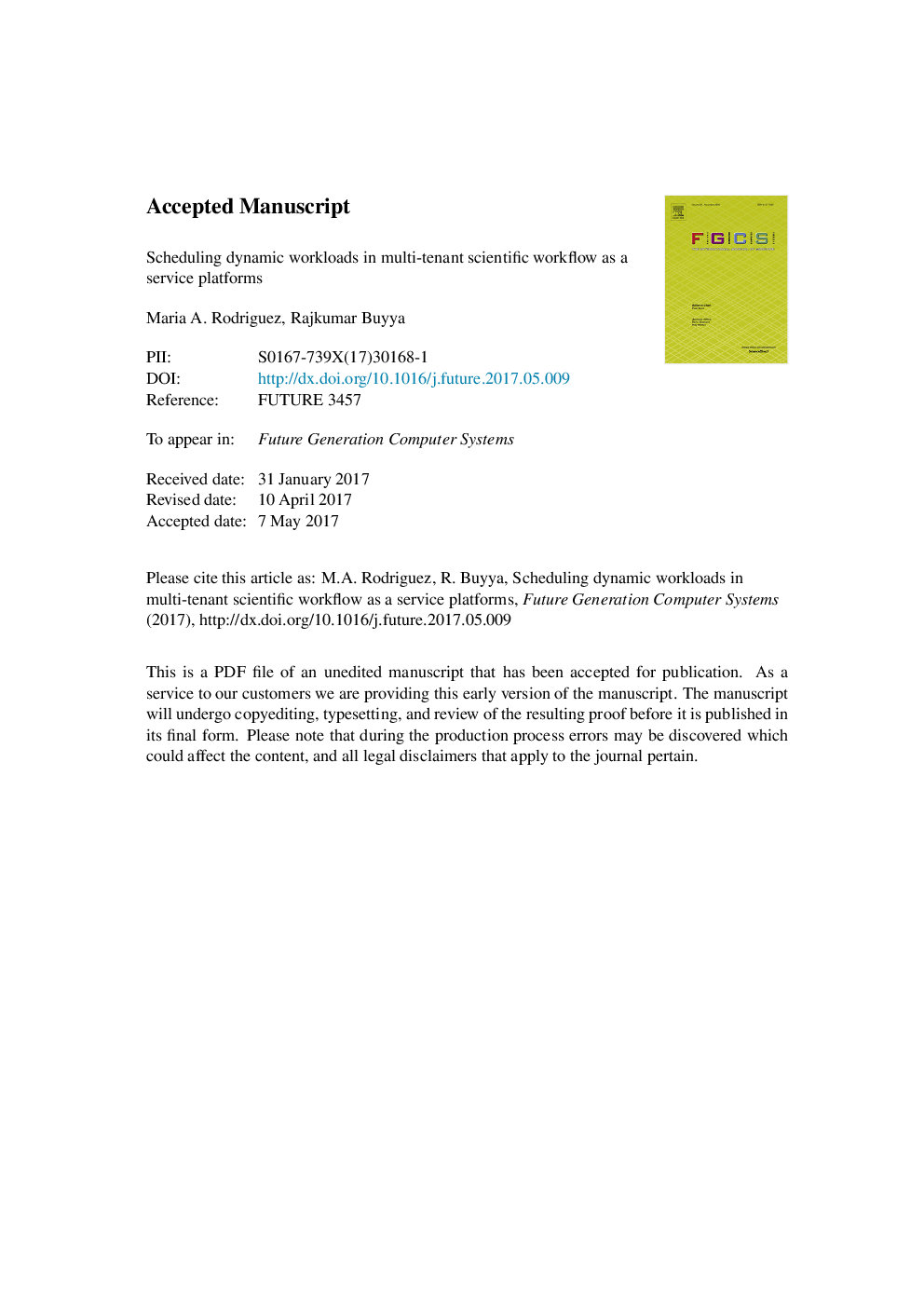| Article ID | Journal | Published Year | Pages | File Type |
|---|---|---|---|---|
| 6873396 | Future Generation Computer Systems | 2018 | 18 Pages |
Abstract
With the advent of cloud computing and the availability of data collected from increasingly powerful scientific instruments, workflows have become a prevailing mean to achieve significant scientific advances at an increased pace. Emerging Workflow as a Service (WaaS) platforms offer scientists a simple, easily accessible, and cost-effective way of deploying their applications in the cloud at anytime and from anywhere. They are multi-tenant frameworks and are designed to manage the execution of a continuous workload of heterogeneous workflows. To achieve this, they leverage the compute, storage, and network resources offered by Infrastructure as a Service (IaaS) providers. Hence, at any given point in time, a WaaS platform should be capable of efficiently scheduling an arbitrarily large number of workflows with different characteristics and quality of service requirements. As a result, we propose a resource provisioning and scheduling strategy designed specifically for WaaS environments. The algorithm is scalable and dynamic to adapt to changes in the environment and workload. It leverages containers to address resource utilization inefficiencies and aims to minimize the overall cost of leasing the infrastructure resources while meeting the deadline constraint of each individual workflow. To the best of our knowledge, this is the first approach that explicitly addresses VM sharing in the context of WaaS by modeling the use of containers in the resource provisioning and scheduling heuristics. Our simulation results demonstrate its responsiveness to environmental uncertainties, its ability to meet deadlines, and its cost-efficiency when compared to a state-of-the-art algorithm.
Related Topics
Physical Sciences and Engineering
Computer Science
Computational Theory and Mathematics
Authors
Maria A. Rodriguez, Rajkumar Buyya,
